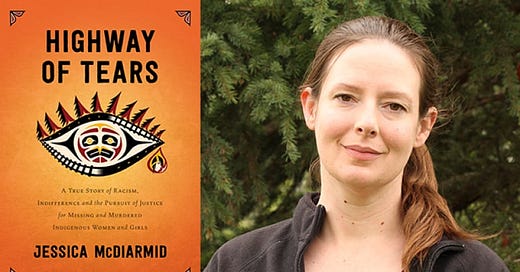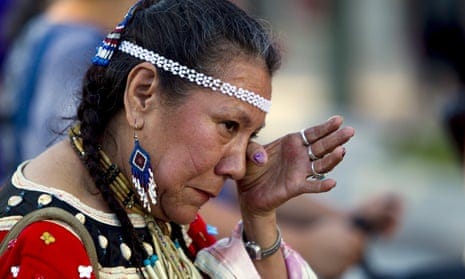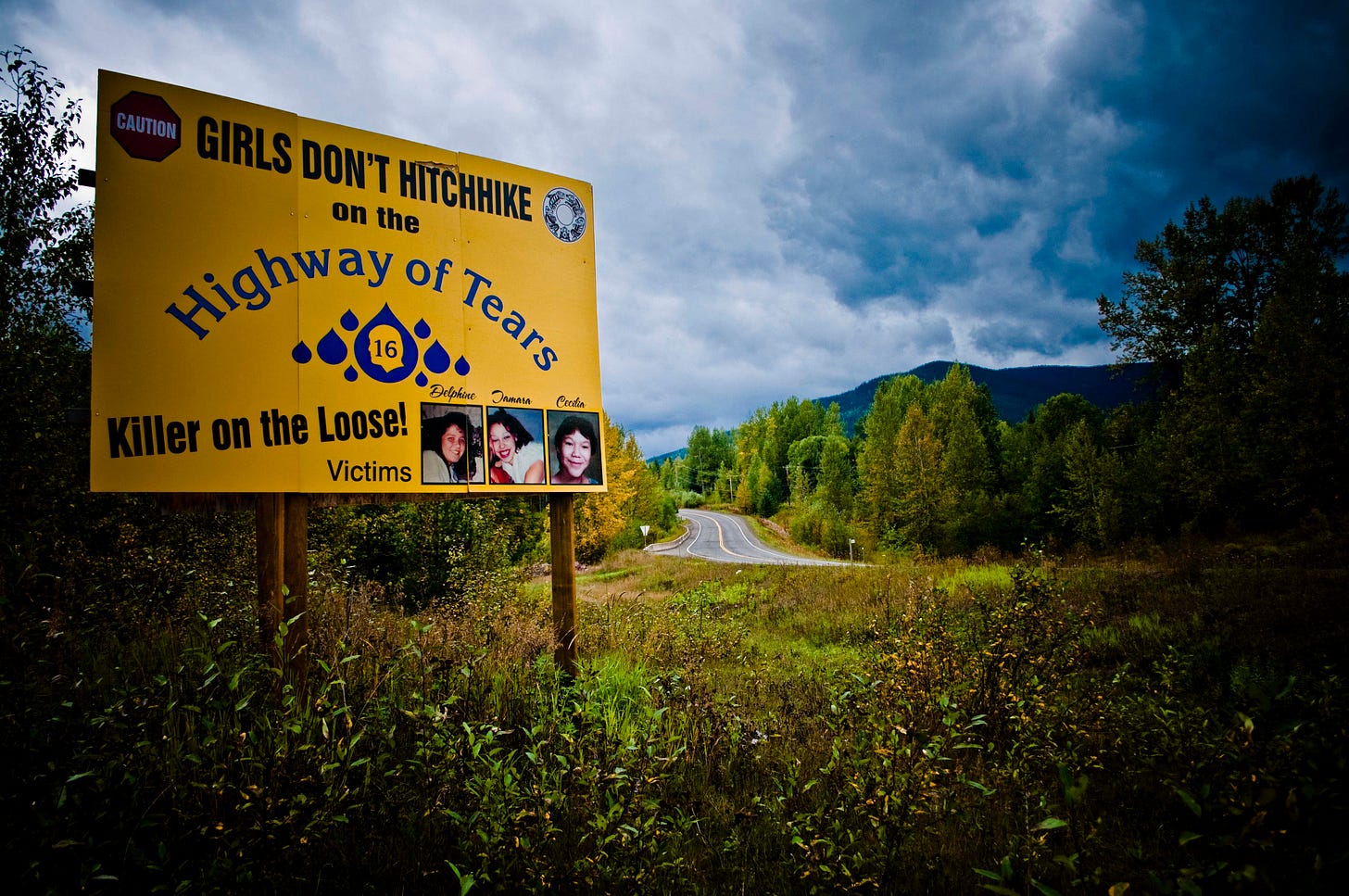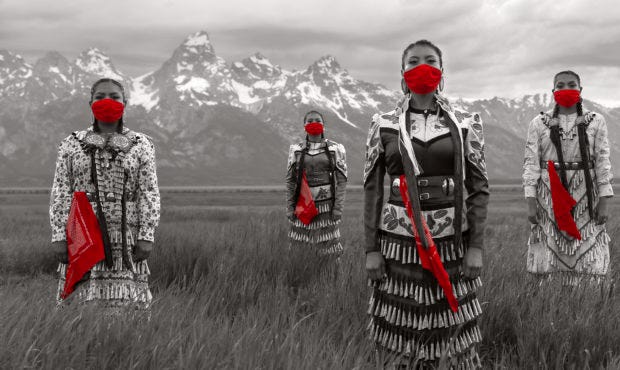This blog space generally features positive and uplifting stories. But once in awhile, I discover the truth about something that won’t let me rest until I do my part to shed light on darkness. This is one of those stories.
“Highway of Tears” is a non-fiction book by Jessica McDiarmid about a stretch of highway in northern British Columbia where dozens and possibly hundreds of indigenous women have disappeared. Some of their remains were eventually found, but the majority of these young women left their homes one day never to be seen again. This book is not just a retelling of facts surrounding these disappearances, but it’s a tribute to those women and their families who did not, and in some cases, still do not have a voice.
Photo credit: Canadian Broadcasting
I first became aware of this topic when I came across the movie “Wind River”, starring Jeremy Renner, on a streaming channel. The movie, based in Wyoming, is not a true story as such, but depicts the very disturbing reality related to missing women and sexual violence throughout the female indigenous communities in America. It’s a very tough watch. At the end of the movie, statistics about this type of violence are listed. I was left stunned by the numbers. I could hardly believe the ignorance and outright neglect in the justice system that allows these statistics to continue to rise. It didn’t seem like it should or could be true.
I can be a bloodhound when I encounter something I don’t understand or can’t accept. I started to do research to learn not only if the numbers were accurate but I needed to know why this was happening. Sadly, I have learned a very disappointing truth that it’s a real story, as the cover of “Highway of Tears” spells out, of racism, indifference and injustice for missing and murdered indigenous women and girls.
Photo credit: The Guardian
My research reminded me that on one of the late night news programs a number of years ago, there was an episode about Canadian Highway 16 which runs from Prince George to Prince Rupert in British Columbia. Northern BC is home to populations of native peoples and Highway 16 is a main transportation route through small towns and reserves. It’s a high poverty part of the province where young people often engage in dangerous practices like hitchhiking along that stretch of highway.
Because of the overriding problem of poverty in this area of Canada, young women too often resort to drug trafficking and/or prostitution. These lifestyles leave them vulnerable to nefarious criminal activity. For this reason, many of the disappearances have been written off by law enforcement as results of risky behavior on the part of the victims whether or not they actually participated in any kind of criminal activity, and investigations are not high priority. To understand how that has come to be true, it helps to realize that Canada is unique in that it has three levels of police services but all are under the canopy of the Royal Canadian Mounted Police. Prioritization on crime comes from the top, and the RCMP has long taken the attitude that not much can be done to prevent crime where there is a repeated pattern of poor life choices. There were good guys in this story, members of the RCMP, who cared about these crimes and how the families were affected, but their hands were tied by lack of resources devoted to these disappearances. Change has been slow in coming and many of the families who lost their young girls felt they were not heard when their children disappeared and no one was adding up the numbers of how often it was happening.
Photo credit: ATPN News
This book is heart-wrenching to read. The author tells the hard facts, but she also tries to honor a number of these young victims and their families. It is a tragic tale that sheds light on the fact that certain people groups do experience inherent racism and discrimination to this day in America and Canada. Progress is painfully slow, but awareness is growing. Literally thousands of young women in these two countries have died violent deaths and justice was never served. I would much rather read light-hearted news about all the good people are doing in the world around us, but there still is darkness that needs to be brought into the light and the truth be told. And once you know, you can’t unknow. We need to know. If you’re ready to know, read this book. It will teach you, stretch you and compel you. Understanding a problem is key before we can find a solution.
Photo Credit: KSL News Radio
If you’d like to know more about this story, this is a very informative documentary:
I’ve also recently learned that the Attorney General of Washington State applied for and received the Emmett Till grant to partner with local tribes to investigate cold cases of missing and murdered indigenous individuals going back as far as 40 years. Related article:







Oh the unfathomable plan of God. Years ago I wouldn't have given a lot of notice to this complex issue. And then we were allowed to adopt a Native child who is growing to be a young man. Through his eyes and the surrounding trauma of the native plight, my heart is broken for these people. My nephew and his wife are working in the area of human trafficking and the stories, especially regarding the people of tribes, have broken my heart. I pray my son will be able to impact his reservation in some small way.
Heartbreaking and triumphant in the efforts even they’re so much slower than necessary. Thank you for sharing. 🙏